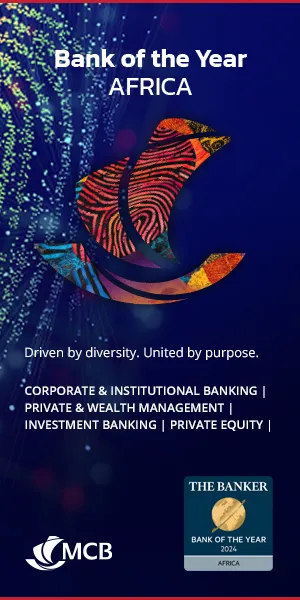How do you view the prospects for the Egyptian economy in the short, medium and long term?
The Covid-19 pandemic was a test to the Egyptian economy, especially due to the country’s drop in foreign currency inflows.
However, the impact wasn’t as severe as everyone expected it to be for a country as densely populated as Egypt, and we started to see signs of recovery in economic activity, and economic growth is expected to reach 5.2% in FY 2021/22, according to the International Monetary Fund (IMF).
Consequently, the private sector will continue to grow and achieve its potential for job creation and sustainable market expansion.
In which sectors are you seeing most scope for growth as a bank?
The e-commerce sector, coupled with fintech, has been driving economic growth in recent years. E-commerce in MENA is expected to grow by 35% year-on-year in 2021 to reach around $30bn, which is double its value in 2019.
Consumers have been leaning more toward online shopping due to its ease and speed, and our services currently cater to this need, allowing customers to perform secure online banking transactions remotely.
In FY 2020, the number of individual customers subscribed to CIB’s online banking service increased by 35% year-on-year, while the CIB Smart Wallet witnessed an increase of 107% in transactions.
Another leading sector in terms of growth is fast-moving commercial goods (FMCG), driven by strong consumer spending and an increasingly formalised retail sector.
Total household spending will expand at a real rate of 3.7% over 2021, and average 4.2% per annum in local currency-terms over the 2021-25 period, making Egypt the second fastest-growing consumer market in the MENA region, creating a higher buying power for consumer goods.
In terms of your own banking services and operations, where will CIB be devoting most attention?
In line with the Central Bank of Egypt’s directions and the bank’s strategy in acquiring a bigger share in the SME credit market, business banking started working on an “Accelerated Growth Plan” through amending our credit policies, alternative score lending model, investing in people, premises, IT developments and wider distribution through business hubs.
To enhance our service model and ensure full coverage, a “New Service Model” was launched in 2021, aiming to expand the coverage of small businesses. We also mapped our branches into household, flagship and corporate to provide tailored services to customers.
For consumer banking, we will continue to focus on strategic priorities such as digitalising the acquisition efforts, marketing activities and service model to support our premium pricing strategy. We’re also concentrating on upgrading our technologies and redesigning our customer experience through introducing transformation projects.
CIB is implementing digital transformation throughout its entire business, from product development to risk management and human capital management.
With digital banking mapping out the future of businesses and the economy at large, big data has become a vital tool to building information-gathering and analysis structures and turning quantitative knowledge into building blocks for future strategies.
CIB has been vocal about expanding its African footprint and acquiring new assets abroad. Is this still part of CIB’s strategy or has the pandemic changed priorities?
Diversifying our operations and expanding into other African nations is still part of our strategy for the coming years. Africa houses some of the fastest-growing economies in the world, which represents a golden opportunity to grow and solidify CIB’s continental footprint as a trade finance hub.
We are currently in the process of identifying potential African trade finance opportunities as we continue to support the growth and development of our subsidiary in Kenya.

Is there room for banking consolidation?
Currently, the Egyptian banking sector is composed of 38 banks, where the level of business activity – number of branches, number of customers, assets and liabilities portfolios, etc – is proportionate to the equity size.
This fragmentation negatively impacts the market, we therefore believe that consolidating some of these entities will create a more competitive banking system with an increased customer satisfaction, and most importantly further push the financial inclusion efforts and reach more easily the unbanked and under-banked segments of the population.
Has the adoption of new technologies resulted in the returns that you envisaged?
Our efficient digital banking solutions have helped expand our customer base across all segments. CIB’s digital platforms became crucial for customers during the Covid-19 pandemic to conduct seamless, secure transactions. It also helped facilitate customers’ migration from branches to the bank’s online services.
This has helped CIB maintain its dominant position in Egypt’s payment acceptance sector in 2020. In the past year, the number of digital banking transactions performed through the bank’s mobile banking service has more than doubled, jumping by 118% year-on-year.
Corporate digital services have also witnessed a major leap, as customers now completely depend on channels offering alternatives to cash transactions and paperwork.
The percentage of corporate internet banking transactions increased by 93% year-on-year, with the number of subscribers increasing by 45% in FY 2020.
CIB digital products include Zaki the Bot, an artificial intelligence chatbot, available on the bank’s website and official Facebook page. Zaki the Bot uses the latest AI technologies that allow CIB customers to easily navigate the bank’s products and services in both Arabic and English.
CIB recently successfully raised a $100m Green Bond. How and where will you be deploying this capital?
CIB’s Green Bond approved pipeline currently has projects in various industrial sectors worth around $70m, including CIB’s headquarters building in the New Administrative Capital, which is in the process of being certified as a green building.
Three projects in the banking and educational sector and the food and beverages industry are also pending certification, with more promising projects underway. It is expected that certified green buildings will be a large part of the projects to be financed, considering that CIB has partnered with IFC on the development of the first green building financing line in Egypt.
Industrial energy efficiency, manufacturing of energy-efficient equipment and water waste projects will also be the focus of CIB financing under the green bond.
Want to continue reading? Subscribe today.
You've read all your free articles for this month! Subscribe now to enjoy full access to our content.
Digital Monthly
£8.00 / month
Receive full unlimited access to our articles, opinions, podcasts and more.
Digital Yearly
£70.00 / year
Our best value offer - save £26 and gain access to all of our digital content for an entire year!

 Sign in with Google
Sign in with Google 






